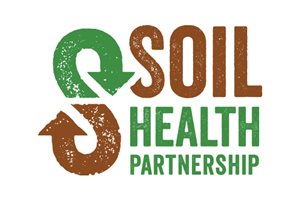There’s a new frontier in sustainability catching the attention of companies across the food system: soil health. But what does a little “dirt” have to do with food giants like McDonald’s?
The answer: a lot.
We all know consumers are hungry to know more about their food. According to General Mills executive Jerry Lynch, today more than ever, people are wondering, “How is the product made? What are the ingredients in it? Where did those ingredients come from? How were those ingredients grown? Who grew those ingredients? Were the people who grew those ingredients treated fairly?”
These engaged food enthusiasts are outspoken and influence mainstream consumers. Their questions reverberate across the supply chain in food and ag.
In addition, more and more, soil is understood as a living organism—an entity unto itself. It is quite literally the foundation of all ag products, whether they end up as food, fiber or fuel. That’s why General Mills has invested $3 million into soil health in the last couple of years. And they’re far from alone. The world’s leading manufacturer of denim, Wrangler, introduced a soil health program encouraging cotton farmers to adopt positive soil management practices and Danone North America, owner of Dannon®, Danimals® and Oikos® just committed up to $6 million for a soil health initiative.
“Soil is the foundation of our food system, with an estimated 95 percent of food directly or indirectly reliant on soil,” said Ryan Sirolli, Agriculture Director at Danone. “As America’s largest yogurt maker, we saw an opportunity to initiate this breakthrough research program with our supply chain.”

Soil health and the environment
Soil health has emerged as a key factor in many environmental issues the world faces. Climate change, water quality, farmer profitability and the health of rural communities can all be improved with healthier soil. For food companies, soil health is directly tied to meeting their environmental goals—delivering more nutritious food to consumers and helping communities see cleaner air and water.
Soils with healthy microbiomes are good for plants, giving them the nutrients they need. Within a soil ecosystem that promotes the availability of nutrients to plants, farmers are able to more efficiently use fertilizers and pesticides, which reduces greenhouse gases. Healthy soils store carbon, which may decrease atmospheric carbon dioxide1. In fact, soil contains the largest store of carbon on Earth—more than what is stored in the atmosphere and in vegetation combined2.
Erosion and nutrient runoff are also key environmental factors that are addressed by improved soil health. Though soil is a natural resource, it is just as unrenewable as oil3. It takes thousands of years for a few inches of soil to develop, all of which, if unhealthy, can be washed away with any added chemicals in one heavy rain, eventually into nearby watersheds. The aggregate stability of soil, or its ability to resist breaking down in rain or wind, is also tied to crop yields4.
As the global population continues to grow, every acre of farmland—and every inch of healthy soil—increasingly needs to be as productive and sustainable as possible.
C|O Insight
Soil health has emerged as a uniting issue that has a universally positive impact on the sustainability of food systems. One of our clients, Soil Health Partnership, is working across agriculture to help promote practices that bolster vibrant soil. The topic is a win-win, no matter where you work in the food system or how you choose to farm. To be seen as a leader in sustainability it’s critical to stay on top of emerging issues that are gaining wide-spread traction. Soil health is just that.

Consider your operations and brands and how they might be connected to soil somewhere within your value chain. An authentic effort that supports soil health could be deeply beneficial to your customers, the environment and your bottom line.
To discuss that, contact Mark Gale at mark.g@co-nxt.com or call 262.563.5100.
Sources
1 http://www.soilquality.org.au/factsheets/how-much-carbon-can-soil-store
2 https://pangea.stanford.edu/soils/soil-carbon-dynamics
3 https://oneacrefund.org/blog/5-reasons-soil-health-key-un-sustainable-development-goals/
4 https://www.soilhealthpartnership.org/feature-soil-sampling/
C.O.nxt Insight.
Our team of subject matter experts focuses on food and agriculture—farm field to processing to entrée on a plate. We can help you build a new brand, protect an old one or target customers to foster sales. Let’s talk when the time is right to handle your next strategic marketing and communications challenge: Marcy Tessmann, marcy@co-nxt.com.
SHARE THIS STORY
What Would You Solve in 30 Days?
Every brand faces moments when clarity, momentum, or alignment are lacking. Sometimes it’s a new product that needs a smart go-to-market plan. Other times, it’s a shift in the business that calls for a tighter
